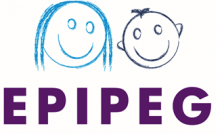 “Our data will indicate whether offering a standard sleep assessment using sleep diaries or actigraphy for newly diagnosed infants would be a low-cost and effective way to avoid cascading consequences of early sleep problems on subsequent socio-cognitive development. Since sleep is a modifiable risk factor, sleep problems could be addressed if picked up early, which could reduce seizure incidence, lead to an increased quality of life of families and save costs.
“Our data will indicate whether offering a standard sleep assessment using sleep diaries or actigraphy for newly diagnosed infants would be a low-cost and effective way to avoid cascading consequences of early sleep problems on subsequent socio-cognitive development. Since sleep is a modifiable risk factor, sleep problems could be addressed if picked up early, which could reduce seizure incidence, lead to an increased quality of life of families and save costs.
We also aim to communicate the results of our study to caregivers and clinicians as quickly as possible in order to draw their attention onto the importance of sleep in early onset epilepsy.”
Background
Sleep problems early in life are linked to poorer cognitive and social development (socio-cognitive development), which can have an enormous impact on a person’s life. Infants with epilepsy often experience sleep problems, but so far the association between epilepsy-related sleep problems and socio-cognitive development has not been investigated in this age group.
The study
In this study, the first of its kind, we aim to explore 1) whether the type of epilepsy an infant has influences the changes seen in their sleep patterns, and 2) if this is the case, whether the nature of the sleep variations observed has an influence on the baby’s socio-cognitive development.
Our group aims to recruit the families of infants with newly-diagnosed epilepsy, who have already enrolled in a larger study at the same institution.
In terms of sleep monitoring, at the first visit parents will be trained to use an actigraph (a wrist-watch/ankle device that uses a number of variables to monitor the nature and quality of a person’s sleep), and they will be asked to record their child’s sleep over the course of a week. They will also be shown how to complete a supplementary sleep diary for their baby. All sleep information will be sent to the investigating team.
Once they have collated all of their data, the researchers will use statistical methods to look for patterns of abnormal sleep in different forms of epilepsy, and links between any sleep variations found and socio-cognitive development scores. They will use existing ‘normal’ sleep data from infants without epilepsy in their analyses for comparison.
Significance
This will be the first study to assess objectively-measured sleep variables in different types of infant epilepsies, and the potential effects of these sleep variables on short- and longer-term socio-cognitive development.
The findings of this pilot grant could ultimately lead to the development of sleep interventions that significantly improve the lives of infants with epilepsy.
